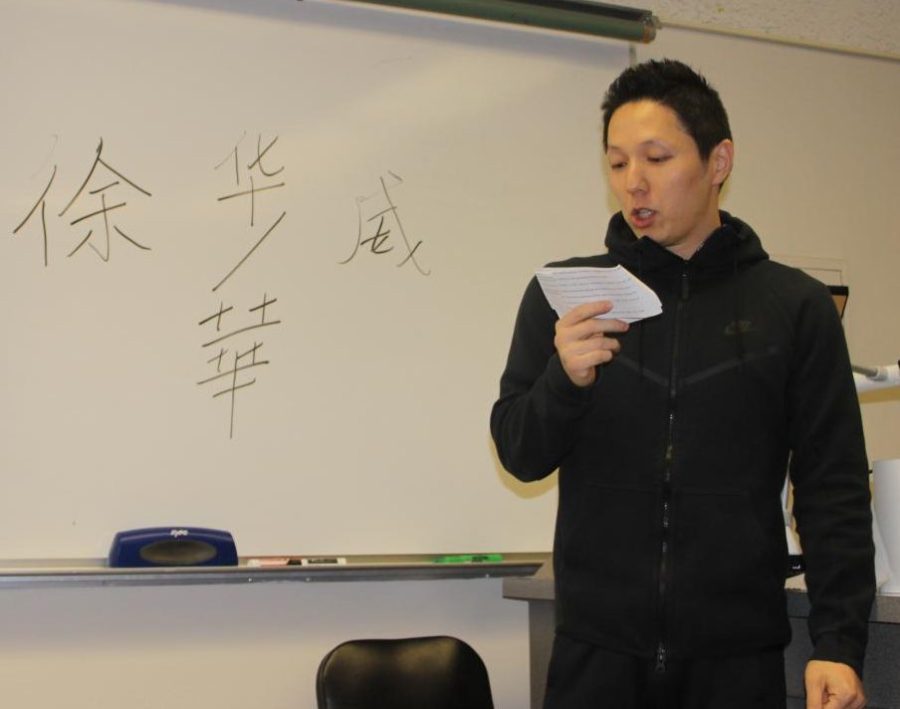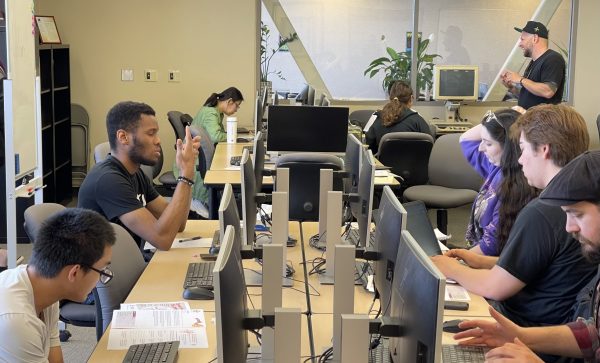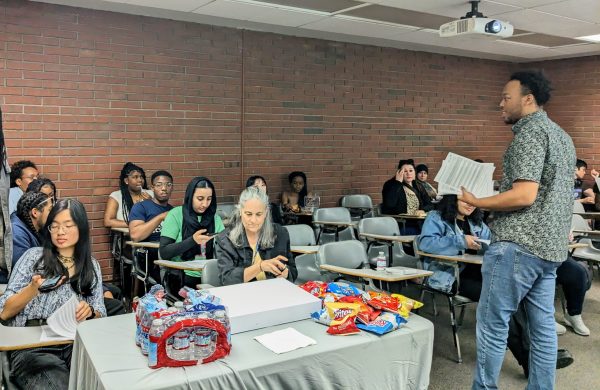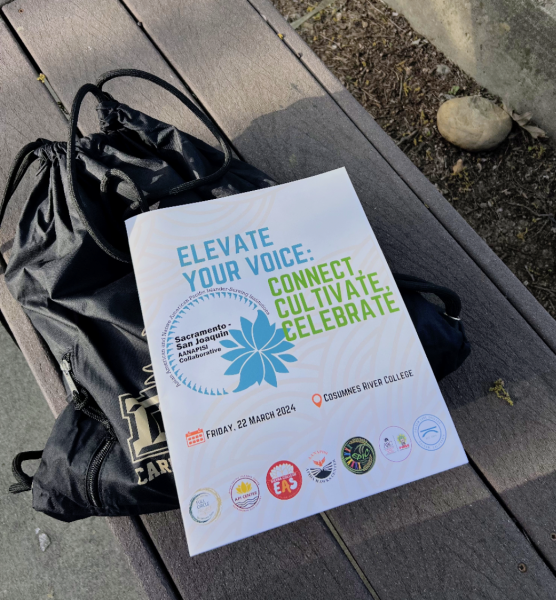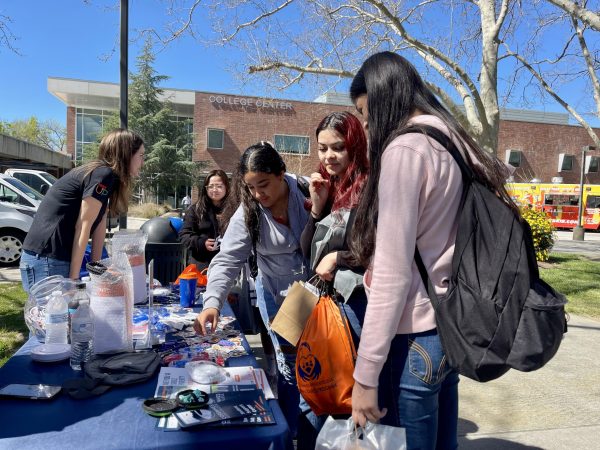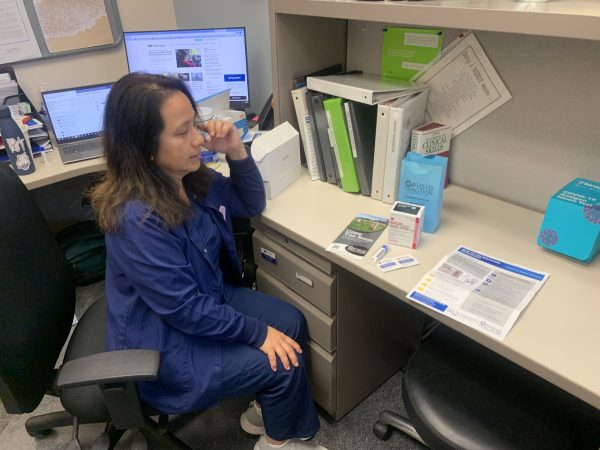English professor explores the origin in a name
Hu Wai Xu shares the long history of his name in L-105 on April 11.
Trang Abeid’s English as a Second Language Writing class held the event “The Meaning Behind My Name” on April 11 in L-105.
The event featured several students from the class who showcased different presentations, poems and essays to a classroom full of students about the stories and meanings behind their names.
“If we cannot understand a person’s name, we cannot understand a person’s culture,” said Hu Wai Xu, one of the students who presented during the event.
In her opening remarks, Abeid described how she felt about her name growing up.
“Why don’t I have an American name?” Abeid recalled asking her mother one time. Because she had her own story behind her name, Abed said that this event ultimately was for her students to tell their stories about their names.
During his presentation, Xu explained how his name connected to his family’s roots.
“My last name represents my family’s origin,” Xu said. He further said that the surname Xu, meaning ‘gently,’ has a long history dating back to 2300 B.C.
Xu further said that his surname comes from the name of his ancestors’ first fief, which is a property of land given by a feudal lord. He also said Hua, which means ‘beauty and luster,’ also comes from his family tree.
In his essay, Rosales explained how he doesn’t identify with his first given name.
“My name is not my name in real life,” Rosales said, mentioning that his parents have always called him Lorenzo.
Rosales said that while his name gives him a “legal identity,” it differentiates him from other people in a place where people are given the same names.
In her essay, Feven Okbay said that her name is reminiscent of her personality and identity. By being named Feven, meaning ‘heaven,’ it gives her strength and independence as a woman.
Okbay said that people should love their names, even if it doesn’t reflect their personalities.
“Our parents want to name us things they want us to see in ourselves,” Okbay said.
Before a Q&A, student panelist Antonio Kon Cao explained the cultural differences in his name.
Cao said he was born in Peru and lived there for 18 years before moving to the United States. He said his parents were originally from China, but moved to Peru 30 years ago.
Cao further mentioned that his parents named him Antonio so he could fit in with everyone else in Peru.
During the Q&A, student panelist Moises Alvarado said that growing up with a father who was a preacher made his faith stronger in addition to the meaning behind his name, which means ‘Moses.’
Like some of the other students who presented during the event, Alvarado said his name is religion-based.
“It really connects to the song that is going to be delivered to the promise land,” Alvarado said.
ESL Professor Lisa Marchand brought her class to the event and told them to anticipate doing something similar in the future.
Marchand also said that students shouldn’t feel embarrassed about their names.
“It’s more important for students to honor their first and last names,” Marchand said.

